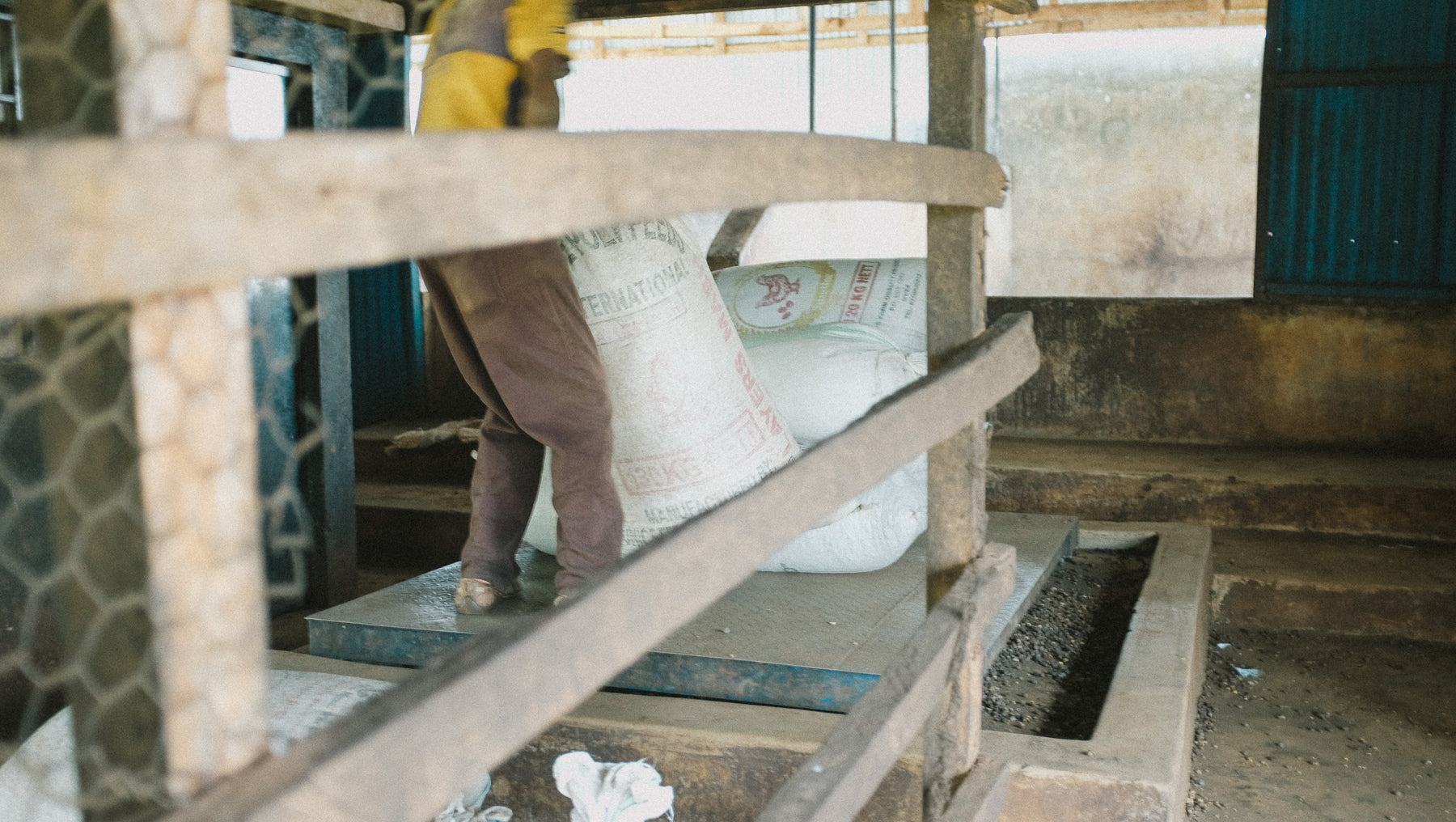La Esmeralda - Natural Process Geisha
Bosque - Natural Process Geisha

On my flight from Berlin to Nairobi I couldn’t get a wink of sleep because of excitement. The complexity of Kenyan coffee and the intense, young berry flavour found in a lot of coffees here is up there with my favourite things in this world. So, sleep was not on the cards for me.
Up until October of last year, the way that we had bought Kenyan coffee was via what’s called a ‘direct sale’, which was, in essence, us saying ‘I want that lot of coffee’ to the person appointed to sell that coffee. The person ‘appointed’ to sell the coffee was called a ‘marketing agent’ and they were employed per year by the farmers, Co-ops and estates to commercialise the green coffee, often begrudgingly. So, it was illegal to engage in direct trade with a farmer here in Kenya. A coffee buyer (like myself) needed to buy from the marketing agent who was representing the farmer and his best interests. This is the way that we bought coffee, but there was simultaneously a second way for Kenyan farmers to sell their coffee, and that was and is, the Kenyan Coffee Exchange (Weekly Auction), where the marketing agents would present catalogues of green coffee lots for sale to exporters, who would cup them and then bid on the lots they wanted in the weekly auction.
The new Kenyan government have flipped the country’s coffee industry on its head, and it is now a little disorganised, confusing, but all in all, more transparent for the farmer. It works like this;
Farmer/Co-Op/Estate takes their coffee to a Government warehouse
Farmer/Co-Op/Estatenow have a ‘Broker’ to take their coffee to Auction. This is the replacement Marketing Agent
The Wednesday auction happens and the farmer can see what the days prices are like, whether their coffee sells and for what price.
Once sold, the money from the buyer goes into a Government controlled bank and once the coffee is milled and ready for export the farmer gets paid the net total after all expenses are taken out. So far we haven’t heard of anyone being paid yet, and usually farmers would have been paid at least 40% of their take.

Speaking to Samuel (above left), the assistant manager of Rungeto Farmers Co-Op, I got the sense that he, and the farmers he represents, are positive and hopeful for this new way of doing things and that the government has the farmers best interests at heart. The lots of coffee that Rungeto produce are some of the best in the country and we can see how this auction is of benefit to a group of farmers producing uniform high quality. However, it doesn’t seem like a great system for the producers that don’t have a strong name in the coffee industry (in Kenya and abroad), as we are seeing some delicious coffee lots being sold cheap through the auction and some less tasty coffees fetching higher prices largely because of the estate or factory’s name.
What this means is that a farmer that had traditionally sold their coffee each year directly to a buyer (via the marketing agent) for an agreed on price now runs the risk of their coffee either not selling, or selling for a lower price than they had received traditionally from their ‘partner’ buyer. This also means that they could also receive a higher kilo price from the auction, but its out of their control, it’s an auction.
To sum up, it’s a clear and transparent system operating now, but there are some producers that are sceptical but most seem hopeful.

We have made our selection for 2024/2025 Kenyan coffees and are excited to bring them to you a little later in the year, after they’ve arrived in Europe!
The cup quality overall is higher this year than the past two years, with a lot of the PBs scoring very high, and the AA and AB lots tasting fantastic. A solid rainy season has also given the plants and soil and solid foundation for another great season coming.
The Kenyan coffees that we currently have on offer are still all tasting fresh and vibrant, largely because of two things – great processing from the factories and great storage of the coffee with them being in vacuum sealed bags and stored in boxes.
Githembe AA from Kirinyaga, is tasting of Blackberry, citrus and fresh plum. We roast this coffee both for filter and espresso, and is a recommendation weekly.
Kagumoini AA is from Nyeri and is running low now. This coffee summed up is jammy. Super sweet and bright acidity paired together create a morning jammy cup profile. Get in quick to secure your bag of Kagumoini AA.
We have just released a coffee that we have held onto for a year now – Karimikui AA, from Kirinyaga and the Rungeto Co-Op. This lot of vacuum sealed coffee is vibrant and pure berry juice. A joy to drink. It will be sold as a filter roast only and will sell out fast.
